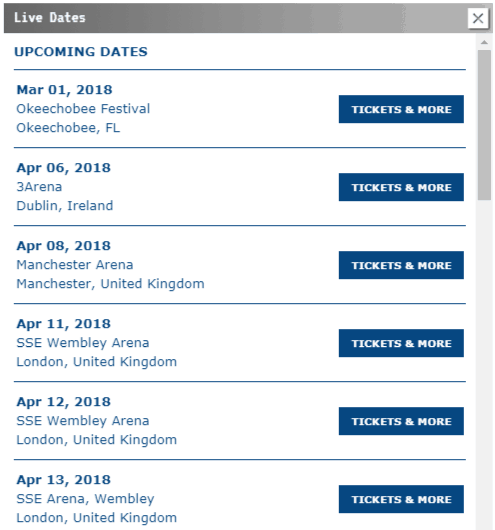Are you joining us at the next London Affiliate Conference? If you haven’t been to LAC yet, you have missed one of the most important events for iGaming professionals there is.
During 4 intense days in the beginning of February 2018, thousands of professionals working within the iGaming space come together to network, do businesses, and be part of what has become one of the key events in the online gaming world.
This video from last year’s event gives you a good idea of what to expect:
Experts sharing SEO tips
As always at LAC there is an impressive lineup of speakers, covering a wide range of topic related to the iGaming industry. It just so happens that one of these topic is SEO and for this year no less than seven speakers are sharing their SEO expertise with the public.
Confirmed SEO speakers (in no particular order):
- Bastian Grimm whom I met briefly at Search Camp in December – here representing Peak Ace AG
- Christoph C. Cemper – the founder of LinkResarchTools, a tool I have used myself for link audits
- Fili Wiese – whom I haven’t met but heard about before (ex-Google employee, now at SearchBrothers)
- Judith Lewis – founder of Decabbit Consultancy
- Kristoffer Holten – Head of SEO at Fable Affiliates. Kristoffer’s presentation covers negative SEO
- Nichola Stott – founder of Erudite. Nichola will be sharing her though on progressive Web Apps
There are of course other speakers confirmed and you can see the full list here.
My contribution: speaking about SEO, 8 Feb @ 10:30

Personally, I am especially excited about this year’s LAC as I have been invited to speak about SEO on the first day of the conference. My topic of choice is structured data.
“What is structured data?” I hear you ask. Great questions!
In a nutshell, structured data is short piece of code that you implement on your website to add meta data that Google can use directly in its search results. The added information is embedded using vocabulary from schema.org and the results Google give are often referred to as rich snippets.
Rich snippets are often mention within the context of food and cooking. This, perhaps, because of the very clickable results these produce

These rich snippets are aimed at give searchers more details about a specific page before actually visiting it. The extra information provided can be anything from dates of an event, address, names of people, etc. I have added the LAC info at the bottom of this post to see what Google will pick up.
Each type and property found on schema.org indicates its usage across the web but I am not sure how accurate this number is, though:

Interestingly, structure data (according to the official numbers) is not used as much as Google probably would have hoped, it seems, which is rather odd as rich snippets help CTR and may even lead to better rankings. Hopefully my presentation will pique webmasters’ interest and prompt them to start using schema.org’s suggesting on their landing pages.
Properly marked up content will be increasingly important in the future with the development of voice search and Search technology that requires more than just text to understand the meaning of website content.
To fully appreciate the value of structured data, let’s look at a live example that you might relate to.

Let’s say that you are in the UK and want to find out the latest tour dates of your favorite band. Let’s assume that your favorite band is Arcade Fire and that you use Google as starting point when looking for a concert ticket. You’d then Google something like [arcade fire tour dates] or [next arcade fire gig].
You would then likely see something like this:

Note that the website songkick.com performs remarkably well for a range of terms related to tickets and tour dates and ranks first under the Google carousel.
There may be many reasons why this is the case (such as the usual SEO factors: domain strength, relevant content, etc) but what’s interesting here is that songkick.com is the only website in this SERP that lists the correct tour dates(!) and this may be why it ranks so well despite sharing the SERP with other websites using the same schema markup.
Have a look at the correct tour dates as listed on the official Arcade Fire website:

As you can see, the other two websites using structured data to mark up these events have both missed a couple of dates (Mar 1 & April 6):

It’s hard to know for sure but Google may have refereed to the source (the official Arcade Fire website) and given songkick.com a boost for being, well, the pages providing correct information.
This is the kind of thing that makes structured data a particularly interesting topic.
At LAC, I will be speaking about how to implement it on a website, the commercial benefits of doing so, and what the future holds – especially around the developments of voice search.
Will you be joining us on the 7-10 of February? If so, pop by the PokerStars stand and say hi.
The Markup of this page is done with schema and a ld+json script
Share this Post

